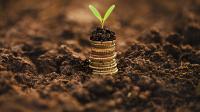Sustainable finance and sustainable investments: What have we learnt from the pandemic?
Sustainable finance and investments - financing and investment decisions which take into account environmental, social and governance ("ESG") considerations - remain a focus for financiers and investors. The market continues to grow and has demonstrated strong performance and returns in spite of the coronavirus pandemic and its impact on the global economy.

2020 and its impact on the sustainability agenda for investments and financing
Despite the hardship and uncertainty faced by many in 2020, some positive news has come to light in relation to sustainability and sustainable investments.
Analysis by Fidelity International (fidelity.co.uk) found that in 2020, stocks that had been assigned a Fidelity International (A) rating for sustainability outperformed the MSCI AC World index, and there was a positive correlation between a stock's ESG rating and its returns to investors. Morningstar reported similar findings that sustainable equity funds outperformed traditional equity funds in 2020 (morningstar.com).
These results will not come as a surprise to proponents of sustainable investments, who can point to the fact that from 2015 to 2020, renewable power portfolios delivered higher returns with less volatility than fossil fuel portfolios in the US, UK, France and Germany (Source: Energy Investing: Exploring Risk and Return in the Capital Markets, A Joint Report by the International Energy Agency and the Centre for Climate Finance & Investment, June 2020, 2nd Edition). The results in 2020 highlight that companies with high ESG ratings were more able to withstand the economic impact of the pandemic and political events during 2020 and provide returns that outperformed traditional asset classes. This may be, in part, due to the fact that companies with high ESG ratings: (i) have stronger management teams and more robust governance processes, (ii) benefit from customers' and other stakeholders' buy-in for the green agenda and (iii) are less exposed to the collapse in demand for fossil fuels. These results coupled with strategies adopted by the European Commission and governments internationally in delivering on climate and sustainability objectives will continue to bolster the growth and investment in sustainable projects.
The returns from renewable and sustainable investments are encouraging; however, we should not overlook the economic conditions which have spurred these positive returns. The low interest rate environment and the rhetoric relating to sustainability may have contributed to demand-pull inflationary pressure within the market, as the supply of renewable and sustainable companies and their output remained largely unchanged during 2020. The ESG agenda has further contributed to the increase in demand for ESG investments, as it has encouraged investors to consider investments with a longer time horizon than traditional investments. This inflationary pressure may, by way of example, explain the share prices of Ørsted, a Danish energy company, and Vestas, a Danish wind turbine manufacturer, which peaked towards the end of December 2020 and the beginning of January 2021. However, since the beginning of 2021, the share prices of Ørsted and Vestas have fallen by approximately 21.00% and 14.63%, respectively, suggesting that the demand for ESG investments may have overheated the market in 2020 providing a misleading picture of the level of positive returns for these investments. In addition, the positive performance of ESG companies in 2020 may have encouraged investors to realise these positive returns and sell their holdings, which may have dampened the positive trajectory of returns for ESG companies in 2020.
What are the recent developments in sustainable finance and investments?
Sustainable finance and investments are set to grow at an accelerated pace as the market expands and new and existing investors increase their commitment to the market.
In particular:
- Danish pensions funds accelerated their investments in green projects in 2020 by investing a further DKK 50 billion from DKK 126 billion in September 2019 to DKK 176 billion by July 2020. These investments correspond to the Danish pension sector's pledge to invest DKK 350 billion in green projects by 2030 (forsikringogpension.dk).
- Sustainable bond issuances have been on a growth trajectory since Q1 of 2020 supported by the European Commission's EUR 14 billion social bond issuance in 2021 and the issuance of Italy's EUR 8.5 billion sovereign green bond. The largest sovereign green bond from a European issuer to date.
- Export credit agencies continue to offer new products and are expanding their support for sustainable projects. In 2020, UK Export Finance doubled its support for sustainable projects to GBP 2.4 billion (gov.uk), and EKF Denmark's Export Credit Agency ("EKF") received an additional DKK 14 billion for green projects (ekf.dk). Further, EKF has introduced a wider range of products to support sustainable projects, including structured finance products.
- Pension funds and other credit funds continue to lend directly into sustainable projects. A recent example is the Danish pension fund PFA's investment into a triple-digit million Danish kroner loan agreement with Northvolt supporting the construction of one of Europe’s largest factories for the production of sustainable lithium-ion battery cells (pfa.dk).
- Sponsors and developers continue to scale renewable energy projects through portfolio financing, in particular wind and solar projects. This is driven by the benefits of "portfolio protection" where underperforming assets are supported by overperforming assets. Portfolio projects also provide sponsors and developers with access to greater leverage and longer loan terms. Financiers similarly benefit from the portfolio protection and are granted security over the full portfolio. There are conflicting views on whether proponents of portfolio projects overstate the benefits of "portfolio protection", as the portfolio model can conceal the impact of a poorly performing project on healthy and viable projects, which may have long-term impacts on the returns of an entire portfolio. There have also been developments in the financing structures of sustainable projects, including financiers providing mezzanine financing to portfolio projects generating strong cash flows.
Despite the coronavirus pandemic and its impact on the global economy, positive developments continue to be made in sustainable financing and investing. Whilst the returns from 2020 may be overstated, they nevertheless demonstrate that sustainable investments can withstand macro-economic shocks and continue to deliver good returns.
Contact

